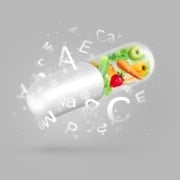Vitamin Fortification Can Cause Off Flavors in Dairy Milk
Adding value to food and drinks is a popular trend in the food manufacturing industry. Consumers are demanding food and beverage brands to find ways to improve the nutritional value of their products. In fact, you can see many nutrient fortified products from cereals to soda.
The Rise of Value-Added Beverages
This is the reason why there is an increase of probiotic-infused beverages in the market. Examples of probiotic-based drinks that are available to the public include kombucha, flavored yogurts, and even drinking vinegar. But aside from drinks filled with healthy bacteria, another trend is to fortify ordinary drinks with vitamins and minerals. This is the reason why coffee and tea fortified with vitamins have found themselves on many supermarket shelves.
Plant-based milk created from nuts and seeds is also on the rise. These plant-based counterparts are positioned as healthier alternatives to traditional dairy milk. But for a long time, dairy milk has held on to fortifying milk with vitamins to make it a healthier beverage.
The Problem with Fortified Dairy Milk
The most common vitamins that are added to milk are A and D. In the United States, these vitamins have been added to dairy milk since 1930 to halt the possibility of children developing blindness, cancer, and other vitamin deficiencies. The practice of adding vitamins and minerals to milk has been the standard in making pasteurized milk.
While beverage manufacturers have good intentions in fortifying milk, some consumers are complaining. The vitamin fortification of milk often results to imparting a distinct flavor that consumers mistake for spoilage.
In a study conducted by researchers from the North Carolina State and Cornell University, they found out that water-soluble vitamin concentrates often used in fortifying milk can lead to off flavors. On the other hand, using oil-soluble fortifications often results in no taste difference from unaltered milk. In the same research, test subjects detected a slight difference regarding flavor between enhanced skim milk and unfortified skim milk.
The Implications of The Study
The study revealed that while fortifying milk is a great idea to improve its nutritional value, it is crucial for beverage manufacturers to use the right vitamin concentrates. Having said this, food manufacturers need to improve their process and invest in solutions that can control the impact of vitamin concentrates on the flavor of the dairy product. The researchers recommended using less water-soluble vitamins and rely more on oil-soluble vitamins to improve the quality of their milk products.
But this strategy can backfire when it comes to the organic milk niche. Consumers who value natural and unaltered dairy products might find the fortification against their volition, so they opt not to buy them instead. Milk brands need to be clear and transparent about whether their milk is fortified or unfortified. Companies should look for ways to add food based vitamins like GrandFusion. GrandFusion is a concentrated blend of vitamins from fruits and vegetables including vitamins A and D.
Inspired by www.fooddive.com







